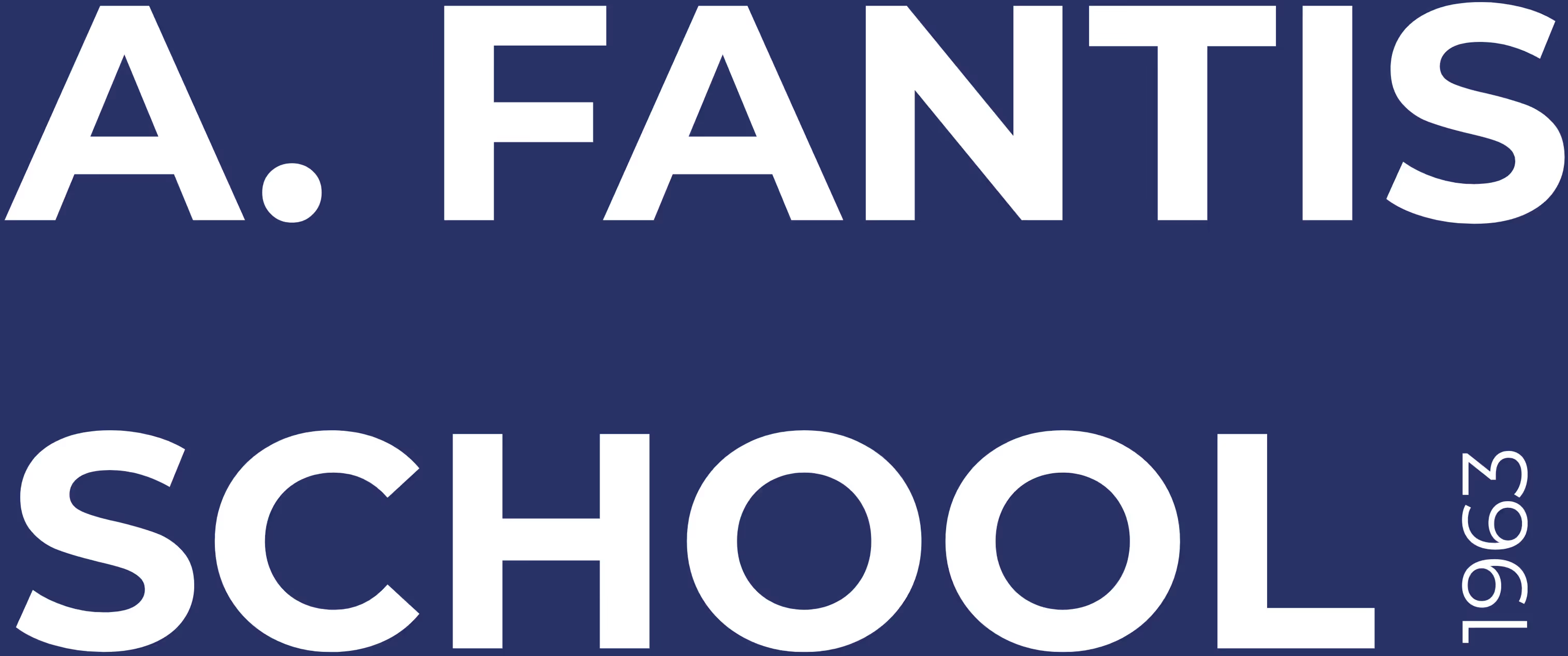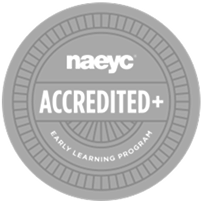

Hellenic Studies
Καλώς ήρθατε στο τμήμα Ελληνικών Σπουδών!
Welcome To The Department Of Hellenic Studies!

Hellenic Studies and Greek language are foundational components of an A. Fantis education. Strong second language fluency, understanding of Hellenic culture and history, and appreciation for its universal ideals and Paideia combine to make a unique educational experience for our students. With the addition of the Hellenic Center for Cultural and Performing Arts and the Grade 8 Athens trip, the school is seeking to deepen and enhance this connection so graduates are better prepared for high school and the broader world. Ample research has demonstrated the many benefits of learning another language, including improved executive functioning. Similar to study abroad programs at university, A. Fantis graduates gain a unique perspective and appreciation of Hellenic culture and their own, which will serve them well in their secondary studies and careers.
Greek is taught for 45 minutes each day to all our students, with the exception of our UPK4 dual language classroom. We have two UPK4 classrooms— one Greek dual language classroom and one traditional classroom. Both classrooms are identical, except that the dual language classroom conducts half the day in Greek and half in English.
Daily language learning is enriched through the use of online media, songs, art, videos, and games. Our cultural exchange program lets our students communicate with schools in Greece, where students from each country learn important lessons about themselves, society and the broader world.
Greek is taught for 45 minutes each day to all our students, with the exception of our UPK4 dual language classroom. We have two UPK4 classrooms— one Greek dual language classroom and one traditional classroom. Both classrooms are identical, except that the dual language classroom conducts half the day in Greek and half in English.
Daily language learning is enriched through the use of online media, songs, art, videos, and games. Our cultural exchange program lets our students communicate with schools in Greece, where students from each country learn important lessons about themselves, society and the broader world.


During their studies our students:
- Learn to communicate in modern Greek
- Explore the most fascinating episodes from Greek Mythology—Aesop’s fables, the Olympian Gods, Heracles, Iliad, the Odyssey—and crucial events from Ancient Greek history, which have deeply influenced Western civilization.
- Become immersed in Hellenic culture through such courses as the Greek Club, Hellenic Studies, traditional Greek dance, as well as drama.
- Engage in a cultural exchange program with students in Greece as 21st Century Pen Pals, including letter writing, glogs, Skype and ultimately the Grade 8 Athens Trip.
- Engage in a cultural exchange program with students in Greece as 21st Century Pen Pals, including letter writing, glogs, Skype and ultimately the Grade 8 Athens Trip.
What if my child doesn’t speak Greek?
No prior knowledge of the Greek language is required to join A. Fantis. All of our classes are taught in English for K-8 students - except of course, our Greek class!
To make the transition to Greek class as easy as possible for students joining after Kindergarten, we offer individualized support through our Greek Language Transition Program. To further make your child’s transition as smooth as possible, our middle school Greek classes are divided into beginner and advanced levels, ensuring that each student receives instruction suited to their fluency level.
To make the transition to Greek class as easy as possible for students joining after Kindergarten, we offer individualized support through our Greek Language Transition Program. To further make your child’s transition as smooth as possible, our middle school Greek classes are divided into beginner and advanced levels, ensuring that each student receives instruction suited to their fluency level.
FAQ
Hellenic Studies
Ancient Greek Paidea
The epitome of achievement in classical antiquity, paideia was “the process of educating man into his true form, the real and genuine human nature.” Citizens were empowered through mind, body and spirit to achieve lifelong learning, good citizenship, families and careers. The paideia method consists of three parts, with the main role of students as active learners with teachers as instructional coach. This coaching is complemented with strategic use of direct instruction, as well as the Socratic seminar, a student-led discussion based around a text or topic where critical thinking skills develop through sharing observations and responding to others’ opinions. Spanning the test of millennia, the echoes of ancient paideia are still felt with more contemporary approaches to education, such as inquiry based instruction, interdisciplinary project based learning, and a focus on the “whole child.”


Elementary School
Hellenic Studies
From Aesop’s Fables to Zeus, Fantis students explore classical antiquity in increasingly more sophisticated ways. In Kindergarten, the amount of daily Greek language instruction increases, as do the expectations and complexity of study. An early focus on speaking and listening fluency transitions to reading writing and grammar. By the end of 4th grade, our students are able to reach Level A1 of the CEFR. This means they can understand and use familiar everyday expressions and phrases, with the ability to interact in a simple way.
Songs, dance and games still permeate instruction at this level, however. Students role-play stories and situations, as well as write letters to pen pals in Greece. Technology is critical in delivering instruction that is engaging and personalized. Interactive online programs, video and mixed media enliven study, as students can experience the same classical myth through text, youtube video and interactive games.
Songs, dance and games still permeate instruction at this level, however. Students role-play stories and situations, as well as write letters to pen pals in Greece. Technology is critical in delivering instruction that is engaging and personalized. Interactive online programs, video and mixed media enliven study, as students can experience the same classical myth through text, youtube video and interactive games.

Middle School
Hellenic Studies
From Socrates in the 5th grade to Diogenes and the origins of Ancient Greek Cynicism in 8th, rapidly maturing student minds and cognition demand more meaningful study in the middle school years. A collaboration between the middle school and Hellenic Studies department guides students through a carefully planned sequence of study that challenges their thinking and deepens their understanding.
The Greek Drama Program gives all middle school students the chance to perform on stage, speak Greek actively and learn about Hellenic authors and their plays, while having tremendous fun. Past performances have included “The Odyssey” by Homer and “Lysistrata” by Aristophanes, which were both adapted for middle school students.
Fantis graduates can expect to reach Level B1 of the CEFR, meaning they are independent users who can communicate in most situations, including leisure, travel and work. As they progress, students take the Greek language certification examinations throughout middle school at various levels. Students of the 8th grade may also participate in the Greek Regents examination, Checkpoint B, of the State of New York, organized by the Greek Orthodox Archdiocese of America. Our studies prepare our students for these high school level exams, which will give them the opportunity to graduate with an advanced diploma if they attend a public high school.
The Greek Drama Program gives all middle school students the chance to perform on stage, speak Greek actively and learn about Hellenic authors and their plays, while having tremendous fun. Past performances have included “The Odyssey” by Homer and “Lysistrata” by Aristophanes, which were both adapted for middle school students.
Fantis graduates can expect to reach Level B1 of the CEFR, meaning they are independent users who can communicate in most situations, including leisure, travel and work. As they progress, students take the Greek language certification examinations throughout middle school at various levels. Students of the 8th grade may also participate in the Greek Regents examination, Checkpoint B, of the State of New York, organized by the Greek Orthodox Archdiocese of America. Our studies prepare our students for these high school level exams, which will give them the opportunity to graduate with an advanced diploma if they attend a public high school.

Preschool
Hellenic Studies
Daily Greek language instruction begins in preschool, leveraging the intrinsic capabilities of this age group. A literature rich environment will include both English and Greek, such as books, labels, common vocabulary and expressions. Preschool students will perform in both Greek and English at events throughout the year. Daily songs, games, dance and the use of interactive technology provide our students with a familiarity of the language that establishes the basic foundations for simple communication and understanding when entering Kindergarten.

Why learn Greek?
Over 60 percent of all English words have Greek or Latin roots. In the vocabulary of the sciences and technology, the figure rises to over 90 percent. Indeed, we speak and write Greek every day without realizing it. Western democracy is based on ancient Greek ideals and universal values, from Plato to Hippocrates. We all can better appreciate our own language and culture through the careful study of the Greek language and Hellenism. In addition, learning a second language has many social and cognitive benefits, beyond simple language acquisition.
Research has shown the positive influence of learning another language has on the development of the brain and a child’s intellectual abilities. Our Greek Language and Hellenic Studies curriculum is academically rigorous and provides students with an opportunity for interdisciplinary learning that is engaging, meaningful and important.


Academics
Academic Excellencefrom Preschool to Grade 8
Excellencefrom Preschool to Grade 8

Excellence
Preschool
Top 5% Nationwide NAEYC-accredited, play-based learning, and bilingual exposure.
Elementary
Strong foundation in literacy, math, and science with Greek language integration.
Middle School
Advanced coursework, leadership development, and high school readiness.
Hellenic Studies
Greek language, history, and cultural traditions for all students.

Sign up for a School Tour
Receive the latest Fantis news and events




